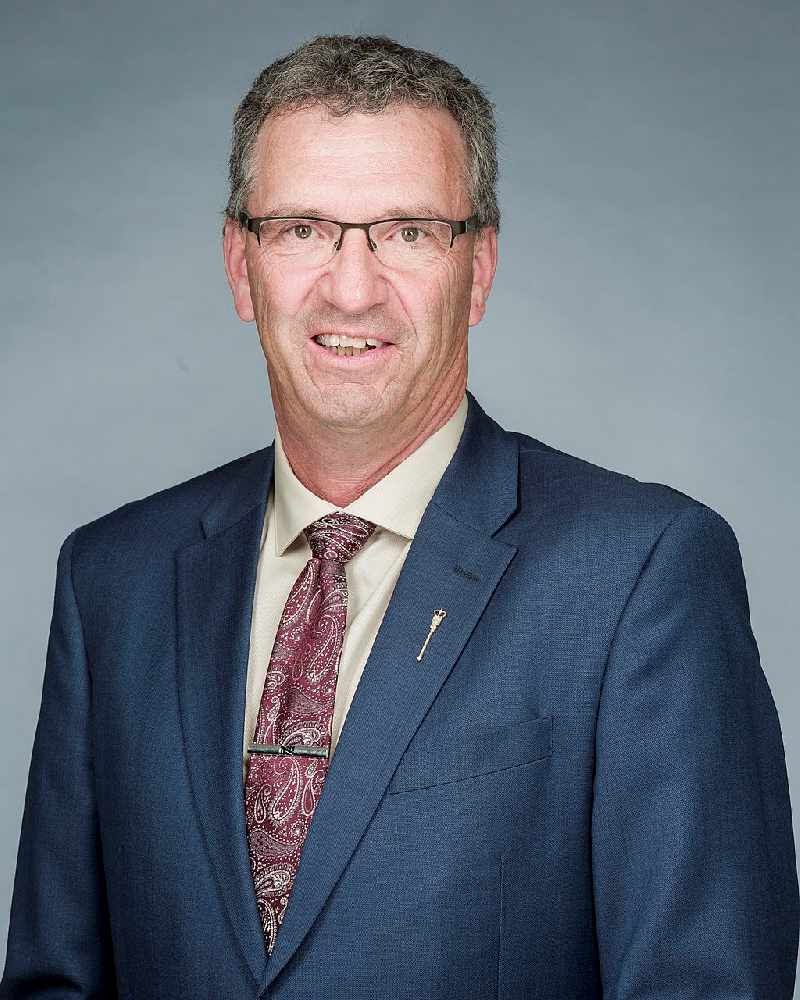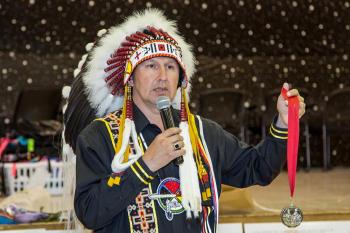Image Caption
Summary
A single tweet from Alexis Nakota Sioux Nation Chief Tony Alexis on Monday received a storm of reaction from those who joined the chief in expressing both disbelief and anger following comments made by a United Conservative Party MLA.
In an interview with the Taber Times, UCP Little Bow MLA Dave Schneider was lamenting the redrawing of electoral boundaries, which would see him seeking re-election in a newly-formed constituency.
“Then it changed to Cardston-Siksika, which also includes now the biggest reserve in Canada, and Siksika might be the second biggest. Not that that’s bad, but these people don’t traditionally vote, and how is the population going to get engaged in this political system in the province. The indigenous people generally like to speak to the most important person in Canada, like the prime minister. An MLA, because of the way that the Indian Act is written, doesn’t have unfettered access to potential constituents. You just can’t go driving around on a reserve any time you see fit,” said Schneider.


Above: Little Bow MLA Dave Schneider
Alexis took to Twitter to express his concerns with Schneider’s choice of language.
After talking with members of the Blackfoot Confederacy to ensure he was moving forward in a respectful way as his First Nation is not in the Little Bow constituency, the Treaty 6 chief tweeted, “I call on @JKenney & UCP LittleBow MLA Schneider to apologize for the offensive statements in a recent interview w TaberTimes where Schneider referred to Indigenous people of his riding as "these people". He also stated indigenous people do not vote & are not engaged politically.”
In an interview with Windspeaker.com, Alexis said “We’re in a place right now where we must move forward and grow together. It’s a time where we must work together,” Alexis said Tuesday night.
“In today’s day, you cannot carry on with that kind of mindset where you disregard any society. As public service people, Mr. Schneider himself, myself, and anybody else who serves in the public, we look after everybody. And we should always respect everybody’s identity and the opinion of everybody.
“He was closed off a bit or maybe he wasn’t reaching over all lines of government to know that (his comments were) not true,” said Alexis, who points out that First Nations deal with all levels of government: municipal, provincial, federal and international.
Staff at Schneider’s constituency office said the MLA was not available for further comment, but on Tuesday morning, Schneider responded on Twitter: “Apologies to any offended by my choice of words. Certainly was not my intent. It continues to be a privilege to represent all constituents since being elected. Encourage all to be engaged in our democracy.”
While Alexis acknowledges Schneider’s apology “as a good thing” and notes that Schneider is a first-time MLA, he says Schneider should have informed himself before speaking.
In the 2015 provincial election, five Indigenous candidates, including the longest serving MLA PC member Pearl Calahasen, sought seats in the Alberta Legislature. None were successful. Rachel Notley’s NDP government was swept into power, on part thanks to a strong Indigenous platform, which included adopting the United Nations Declaration on the Rights of Indigenous Peoples.
Since that time, the province has signed a number of memorandums of understanding with both First Nations and Métis groups in a variety of subject areas.
“Indigenous people are here and we’ve been evolving in business and politics and academia. Indigenous societies have adapted and as we move ahead, as one person mentioned, we should be respectful both ways,” said Alexis.
Alberta Indigenous Relations Minister Richard Feehan referred to Schneider’s attitude as coming from the 1950s. He also said he would be willing to provide Schneider with names and phone numbers of chiefs and councils so he could get permission to go on reserves.

